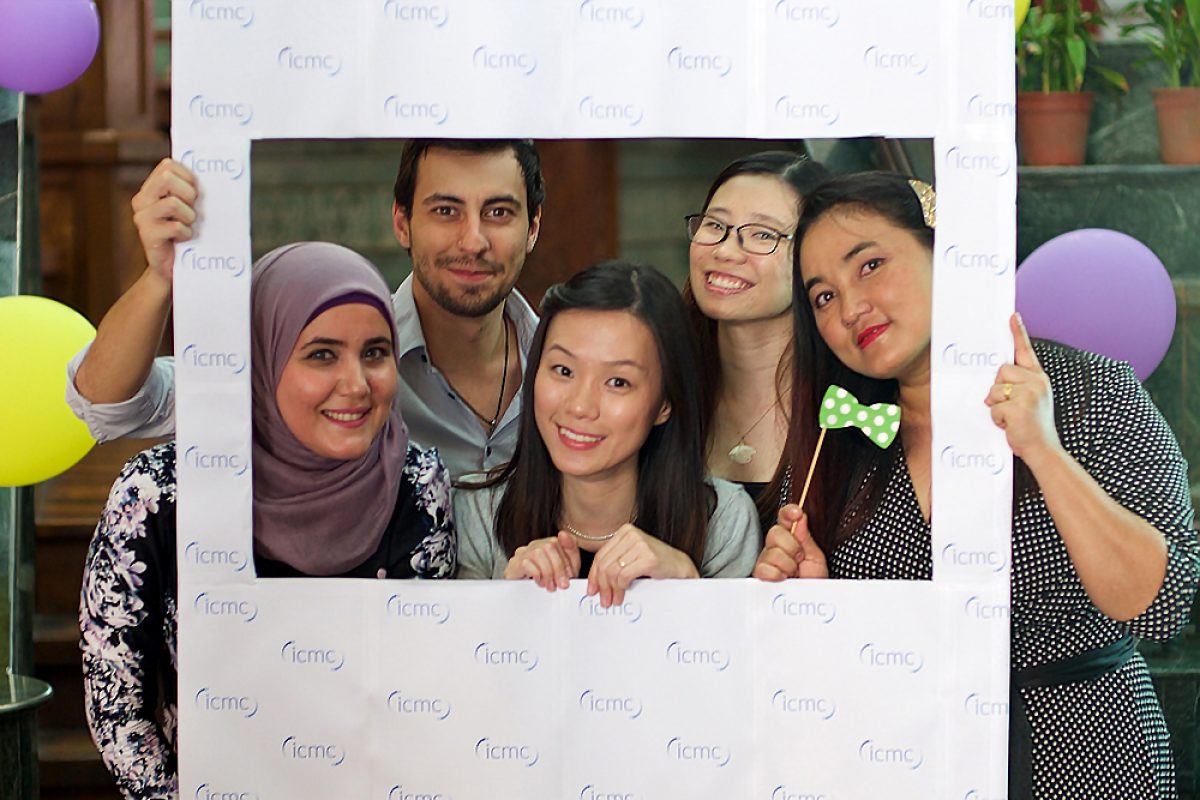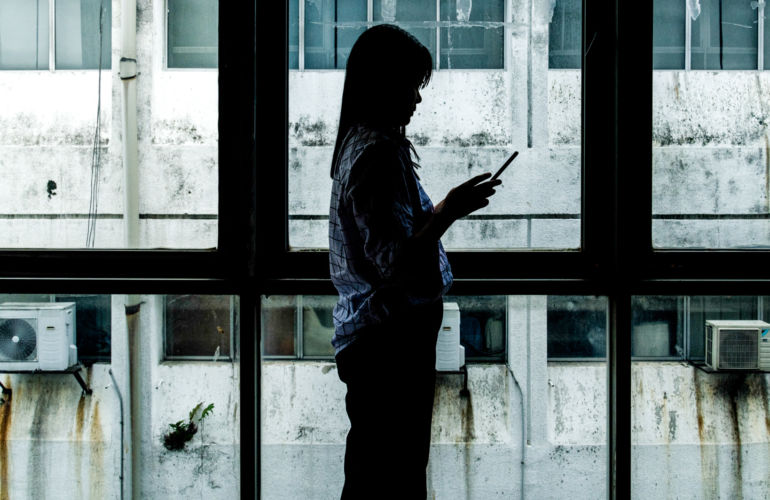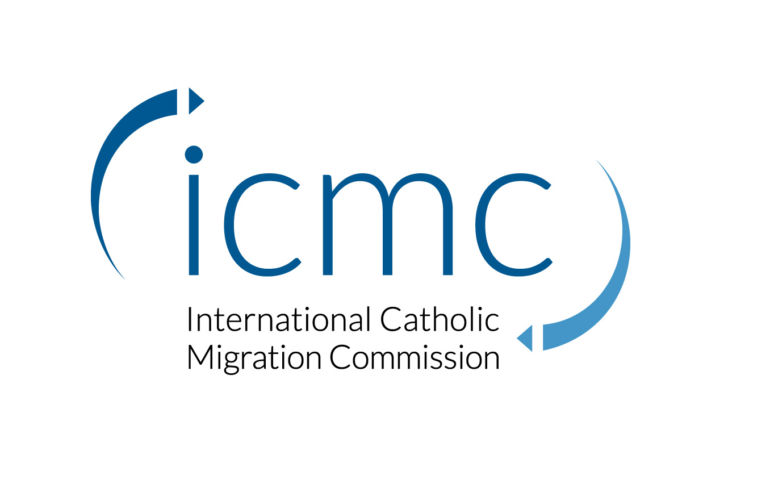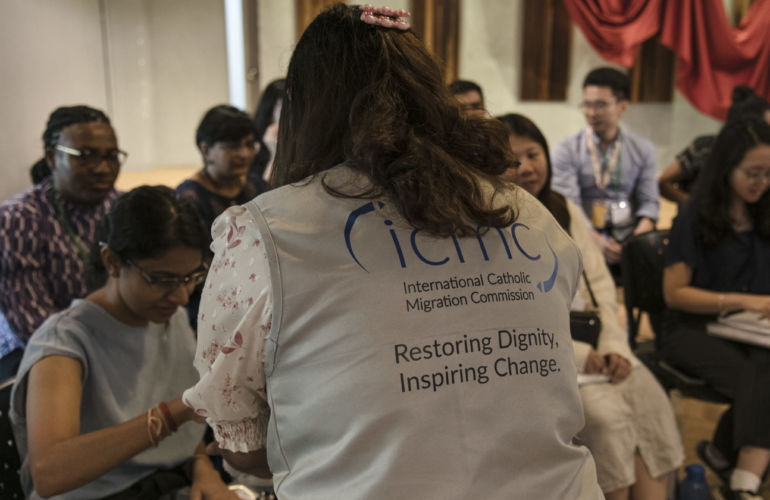A Day Like Any Other? The Refugee Women’s Protection Corps in Malaysia

In Malaysia, refugees are offering life-saving protection and transforming their communities one extraordinary day at a time.
Fatima* walks away from the home of a domestic abuse survivor and takes a deep breath. She has just visited the fellow Rohingya refugee to assess if the woman qualifies for emergency funding assistance. The woman’s husband has left her alone with two children, the youngest only two months old. She has no relatives here in Malaysia to give her support.
For Fatima, a 32-year-old volunteer with the Refugee Women’s Protection Corps, it is an “ordinary” part of an “ordinary” day that, in the end, is anything but ordinary.
She and her fellow protection corps members provide support for refugees affected by gender-based violence and seek to transform attitudes and behavior in their communities. They are trained to conduct awareness raising and outreach activities, peer counseling and hotline response.
The program is a core component of the International Catholic Migration Commission’s (ICMC) work with refugees and asylum-seekers in Malaysia.
“We assist women who suffered abuse. We want to empower them to make their own decisions and take an active part in shaping their own future,” says Jackie Loo, head of the ICMC Malaysia office.
Helping When There Is No One Else
Miriam, a 35-year-old Middle Eastern corps member, is about to set out for the Arab refugee community. Such home visits are a crucial means to raise awareness on gender-based violence.
She visits the community armed with brochures and coloring books that challenge harmful gender stereotypes and let people know how they can get help. Afterwards she’ll report back to ICMC staff about the training, including any feedback from the community participants.
The fact that Miriam is a member of the refugee community and speaks the same language helps to create bridges of trust, which is vital in addressing the sensitive issue of gender-based violence, says Jackie Loo.
“The impact of having refugee volunteers reaching out to their own community is very powerful. Women and children have told us that it feels reassuring to speak to someone who is speaking their language, and to know that this person can reach out to ICMC staff for further help.”
The work was foreign to Miriam, an accountant by profession, when she started volunteering with the protection corps in April 2016. Slowly, however, she became convinced of the need to address gender-based violence.
Though it is sometimes challenging for her that survivors want to discuss other worries like resettlement during her home visits, she is proud now of the impact of what she does each day as a protection volunteer.
“We are helping refugees at times when they think that there is no one to help them.”
Keyword: Empowerment
Four-year corps veteran Arefah agrees. The 34-year-old Rohingya has just taken down a survivor’s story of abuse that will be shared with an ICMC case officer for follow-up. The woman’s situation – alone, with young children to raise but no education or familial support – is not unusual and yet it proves challenging for Arefah in her role.
However, when Arefah is able through peer counseling sessions to empower such a survivor to find the path to an independent life in dignity, she is truly proud of her work.
Raziya can relate. She joined the protection corps nearly two years ago because she wanted to help raise awareness of gender-based violence in her community.
Raziya has been counseling a survivor who was abused by her husband so violently that she was left with broken teeth and a serious head injury. The woman has three children to support on her own.
The woman asked her, “How do I go out and work when I also need to take care of my children and no one can help me?” Raziya is glad that she has been able to provide a listening ear and let the woman know how she can get help.
Safe Space
Rahel, another Middle Eastern protection volunteer, is running the program’s hotline today. She will respond to disclosures of abuse and notify an ICMC staff immediately to ensure that emergency support, such as a safe place to sleep, is provided quickly where needed.
Rahel taught English and interpreted in a local NGO clinic before becoming a protection volunteer. Now as she manages the hotline, she strives to create a space where survivors feel free to share their stories and feelings.
Sometimes cultural barriers are difficult to surmount, though. Rahel can tell by the tenor of one conversation that the caller has something to share but is held back by fear of how her family and community might react.
This brings back memories of a house visit, Rahel says. A young woman with Down’s syndrome had been raped but her mother refused counseling support because she wanted her daughter to forget the incident.
Jackie Loo notes that restoring dignity is a priority for the corps members. “We want to let these survivors know that the abuse is not their fault. It’s because of gender inequality and gender stereotypes. We reduce their tendency to blaming themselves.”
Rewarding for Rahel are the times when she can help someone who is asking for help to feel safe and out of danger from the abusive situation.
One of Us
Yunus, one of the male members of the corps, is interpreting for a perpetrator who is receiving counseling. Later in the day, he will offer similar support during play therapy sessions with children from his community who have been affected by violence.
A 36-year-old Rohingya with experience in health services for a medical humanitarian organization, Yunus has worked as protection volunteer with ICMC for two years now.
Like all the members of the Refugee Women’s Protection Corps, he is proud to give back to his community.
“I am also a refugee.”
(*) All names have been changed.
Note to editors
The Refugee Women’s Protection Corps is the cornerstone of ICMC’s work to reduce gender-based violence in refugee and asylum-seekers in Kuala Lumpur, the Klang Valley and Penang, Malaysia. It includes female and male volunteers from a cross-section of the Burmese, Rohingya and Middle Eastern refugee groups.
In April 2018, the program has been named as an example of socially innovative responses to the needs of refugees and migrants in a study commissioned by Foundations and Donors Interested in Catholic Activities and conducted by the Center for Social Innovation at Boston College School of Social Work.
The refugee volunteers are trained to address sexual and gender-based violence through outreach and awareness raising; peer counseling for survivors; teacher training, and management of an inquiry and emergency hotline.
In 2017, refugee volunteers responded to 302 incidents of gender-based violence, a nearly 140% increase compared to the preceding year. The program also ensured that 33 survivors and 40 children had a safe place to sleep.
In the same year, the program’s efforts to raise awareness about gender-based violence reached more than 1,900 people using training sessions and materials such as brochures and coloring books.


